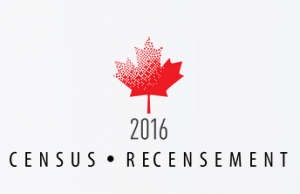Moving in together, “Common-Law Relationships” and Unmarried Spouses in BC
Are we or aren’t we?
 This past year, your household would have received some form of the 2016 Census, which included a question that could stump a few people: Are you married? Do you have a common-law partner?
This past year, your household would have received some form of the 2016 Census, which included a question that could stump a few people: Are you married? Do you have a common-law partner?
The Statistics Canada website defines Common-Law Partner as “persons who are members of an opposite-sex or same-sex couple living common law. A couple living common law is one in which the members are not legally married to each other but live together as a couple in the same dwelling.”
“Common-law partner” is the term used federally (Canada-wide) to mean a marriage-like relationship that has lasted for two years, just one year or even less, depending on what law applies.
In BC, our provincial family laws use the term “spouse” or “unmarried spouse” to refer to an unmarried couple who has lived together in a “marriage-like relationship” for at least two years, or less than that if they have had a child together. There is no such thing as a “common-law spouse” or “common-law marriage” in BC. However, there are still certain consequences of being an “unmarried spouse”. See Unmarried Spouses.
What should I know about before moving in with my partner?
 In BC, If you have lived together in a “marriage-type relationship” for two years (with some variability), these are some important consequences to know about:
In BC, If you have lived together in a “marriage-type relationship” for two years (with some variability), these are some important consequences to know about:
- the debts either of you incurred while you were living together are considered “family debt”, which means that when you break up, the responsibility for this debt may be divided equally between you. Read more about this at: How to divide property and debts, Property & Debt in Family Matters;
- if you buy property together during your relationship, regardless of who paid the downpayment, you could equally share it and equally share the increase in value of property you had before the relationship, which can even apply to the increase in value of “excluded property” like gifts and inheritances;
- the courts will treat you like a married couple when determining spousal support. See Spousal Support;
- you may be considered spouses for the purpose of social assistance and other benefits* (which may negatively or positively affect your eligibility). See Thinking of moving in together?;
- it may affect your partner’s right to “contest” your will. See What Happens When Your Spouse Dies.
I’m already living with my partner. Is there anything I could do?
- You and your partner can write an agreement at any time during your relationship or after you separate that sets out how you want things to unfold if you do separate. See Cohabitation Agreements; Marriage Agreements and Co-habitation Agreements;
- Read more about what happens if one person changes their mind about the agreement. See Thinking of moving in together?;
- If you’ve already separated, read more about Making an agreement after you separate.
I want legal advice and/or more information on my situation. Where can I get it?
If you are low income and have questions on family law matters, the Family LawLine can provide more information and help.
To find legal advice and other help on family law issues, see Helpmap results for “family law” and “legal advice” here. It includes services like the CBABC’s Lawyer Referral Service, which connects you with a lawyer who will offer an initial 30-minute consultation for a nominal fee of $25 plus taxes.
This post didn’t cover everything. Read more about this topic:
For example, we weren’t able to discuss situations where an unmarried couple have had a child together. That would have made this post very long indeed! Read the resources linked throughout this post for more information. Another great resource to consult is: Living Together or Living Apart: Common-Law Relationships, Marriage, Separation, and Divorce
Past posts on Family Law from the Clicklaw Blog:
- How Do I Get Married in British Columbia?
- New Information on Certificates of Divorce
- An Introduction to BC Provincial Court Family Orders
STAY INFORMED:



